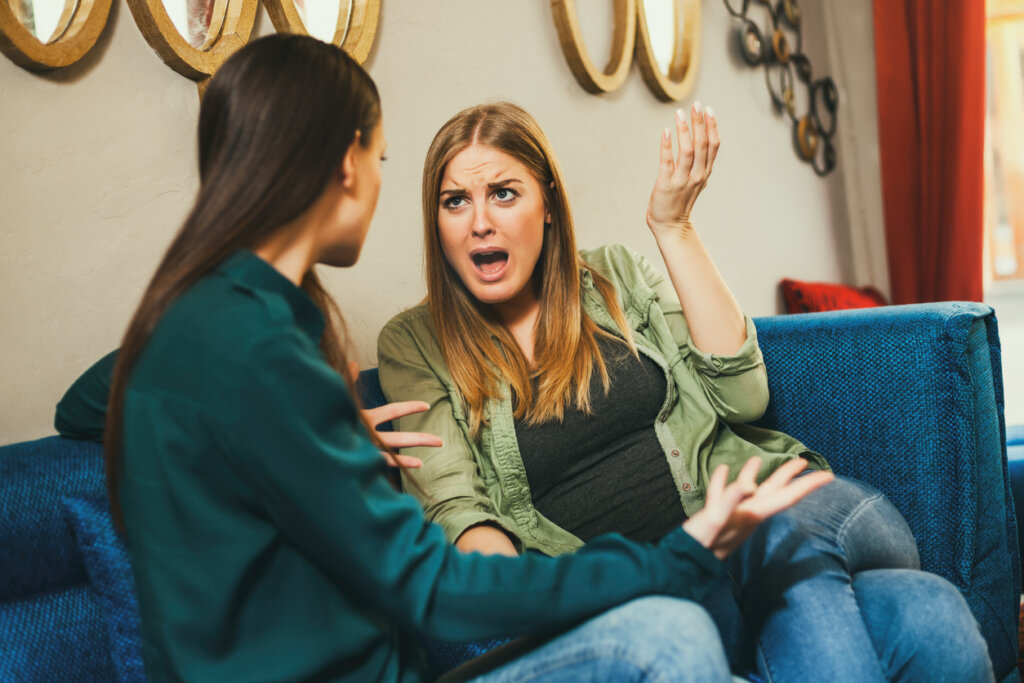Why do Politics, Football, and Religion Provoke Such Heated Debates?

Heated debates often break out around three specific topics: politics, religion, and football. In some cases, the controversy reaches such a point that it’s necessary to establish a rule that punishes those who dare to even speak about the subject. In the worst-case scenarios, contradictions can become so intense that they end up destroying friendships and even family ties.
As a matter of fact, it’s not uncommon for some organizations to prohibit talking about politics, football, or religion in order to avoid heated debates and preserve coexistence. However, this is actually a mistake because censoring these issues doesn’t solve the underlying difficulty: the need for someone to impose their own vision of the world on other people.
It’s also common for these heated debates and disrespectful outbursts to occur on social media. Indeed, it seems that, on this platform, there’s a great inability to accept and overcome differences in a mature manner. Nevertheless, forbidding certain topics doesn’t help to evolve the ability to debate. In effect, it actually castrates the process.
“It is better to debate a question without settling it than to settle a question without debating it.”
-Joseph Joubert-

Why such heated debates?
Why are some subjects so controversial? It’s due, in principle, to the fact that they’re usually matters involving disputes over hegemony. This is more obvious in politics, but in the context of religion and football, something similar also happens.
In these issues, an argument isn’t used to reach the truth, but reasons are sought to show who’s better and who, therefore, holds a more solid power. Furthermore, they’re not really heated debates but direct confrontations. There must always be a winner and a loser.
These heated debates become, as happens on social media, the perfect excuse to unleash narcissism and a dose of symbolic, and sometimes actual, violence. The idea is to see who prevails over whom, not to conclude which of the positions is more reasonable or even to understand what it’s all about.
It’s not you, it’s me
It’s really common that, in these heated debates about politics, football, or religion, comments are impregnated with a series of fallacies. In fact, the central purpose of these discussions seems to be to demonstrate how bad, unworthy, and undeserving one is, in contrast to how good, worthy, and meritorious the other one is and the arguments they both represent.
The other side’s argument is listened to with a single purpose: to attack them. There’s neither the intention nor the effort to assess their point of view in terms of either logic or reason. Emphasis is placed only on what supports or intends to support the position itself. They’re not intellectual, academic, or even ideological debates. They’re disputes.
In these heated exchanges, emotion prevails. They originate in those who feel insecure or undermined and who deal with that feeling of inferiority by identifying with a political party, a soccer team, or a religious institution. Therefore, they assume other points of view as a threat.

How to overcome the problem
To transform these heated debates into civilized debates, there must be a desire to want to do so. However, many don’t want to because their political, sport, or religious identification is so strong that they take on the task of defending their group as a crusade. In other words, they feel that their duty is to impose themselves and, thereby, strengthen the dominance exercised by their group.
In order to avoid heated debates, we should learn to debate. This is influenced by knowledge and practice. There are basic and universal rules to advance these types of discussion, such as respecting each other’s turn in the conversation, listening to each other, and not getting offended.
If you didn’t practice these kinds of skills at school or university, you probably need to polish them up. A good way to do it is by training yourself. You can do this by initially discussing issues that aren’t so polarized. Indeed, if you manage to learn how to debate, you’ll not only become a more intelligent and constructive interlocutor, but you’ll also advance in the process of enriching yourself.
All cited sources were thoroughly reviewed by our team to ensure their quality, reliability, currency, and validity. The bibliography of this article was considered reliable and of academic or scientific accuracy.
- Aguiló-Regla, J. (2018). Acordar, debatir y negociar.
- Gómez Vazquez, J. (2021). El arte de debatir. Jameos digital: revista de contenidos educativos del CEP de Lanzarote.
This text is provided for informational purposes only and does not replace consultation with a professional. If in doubt, consult your specialist.








